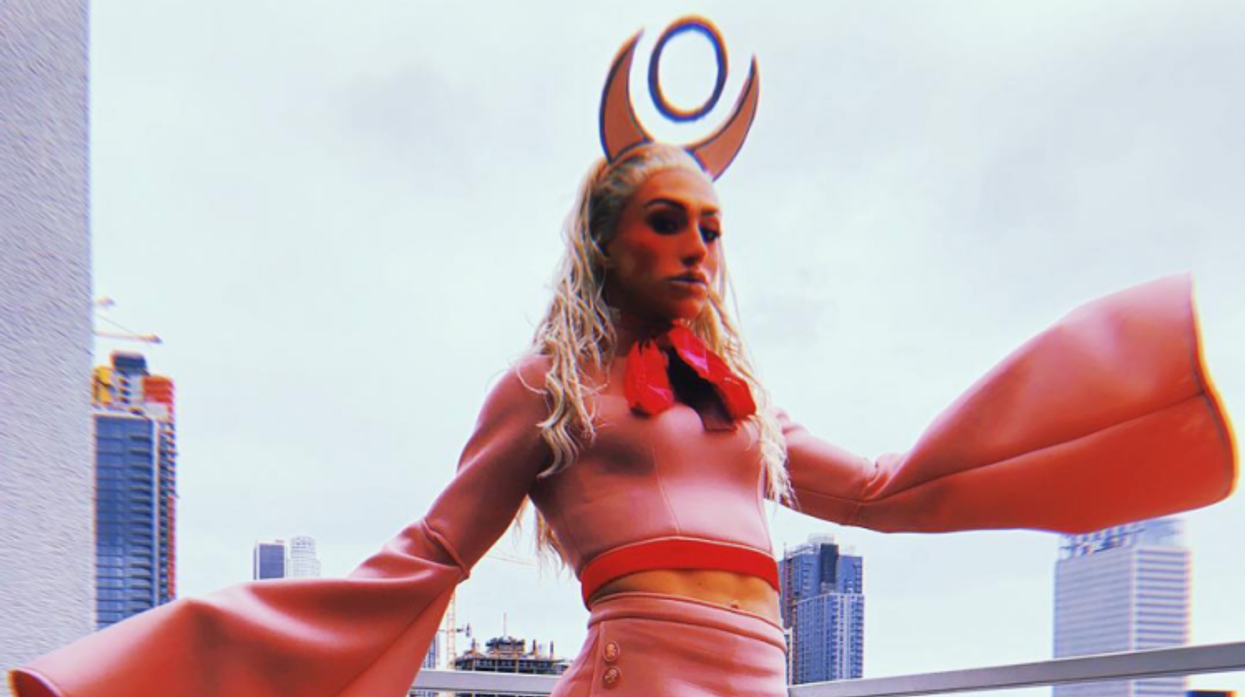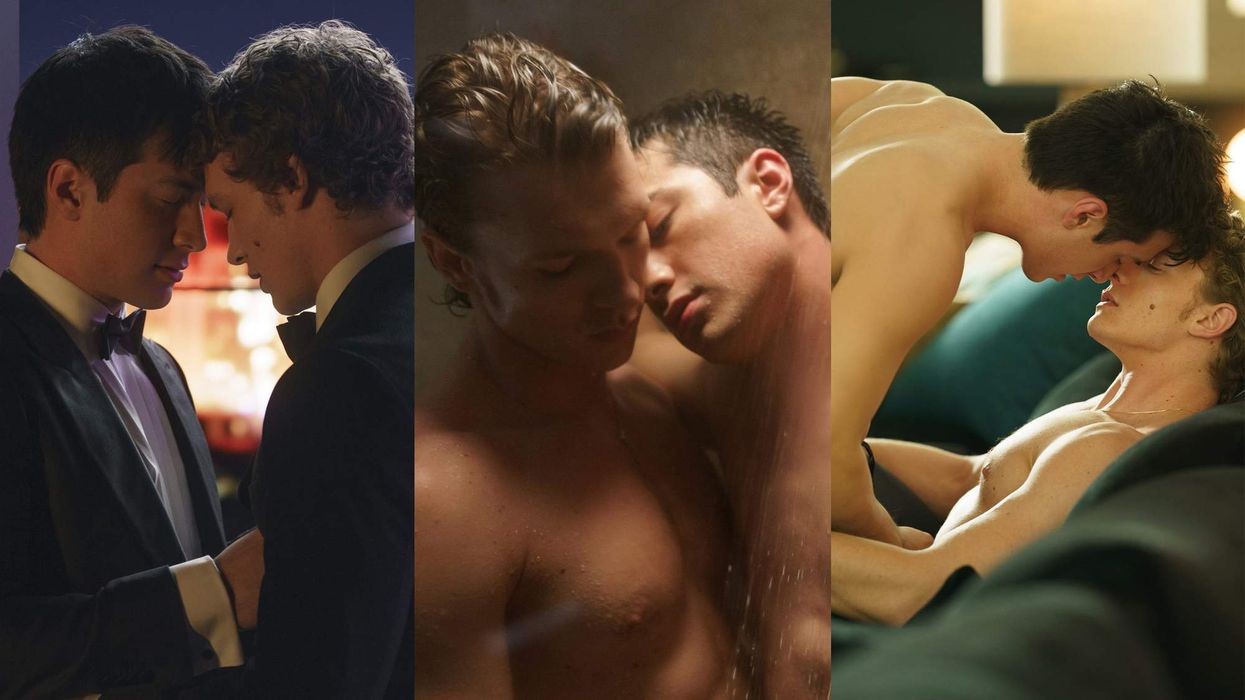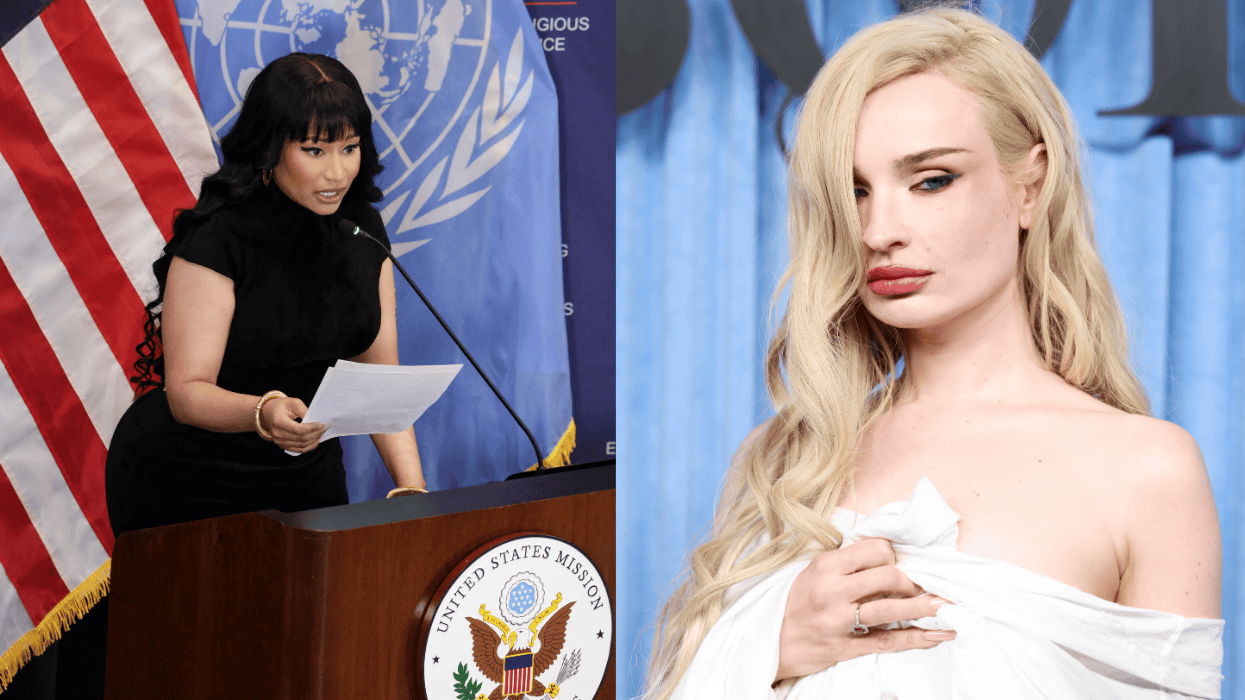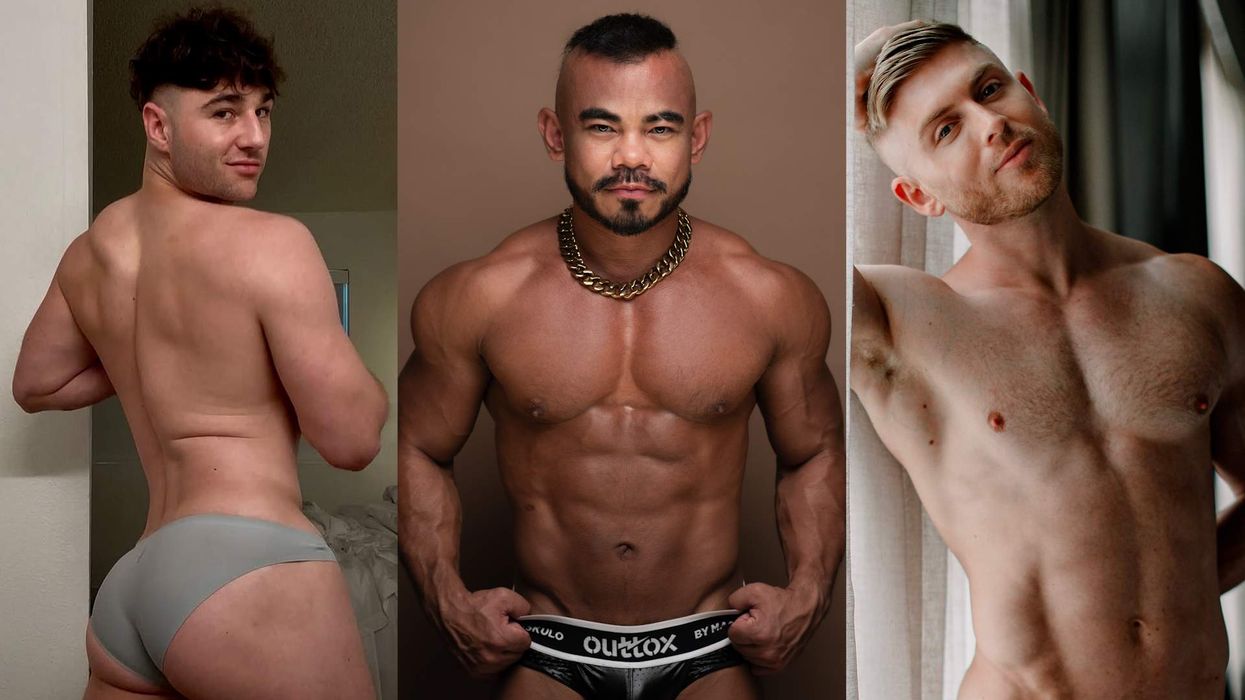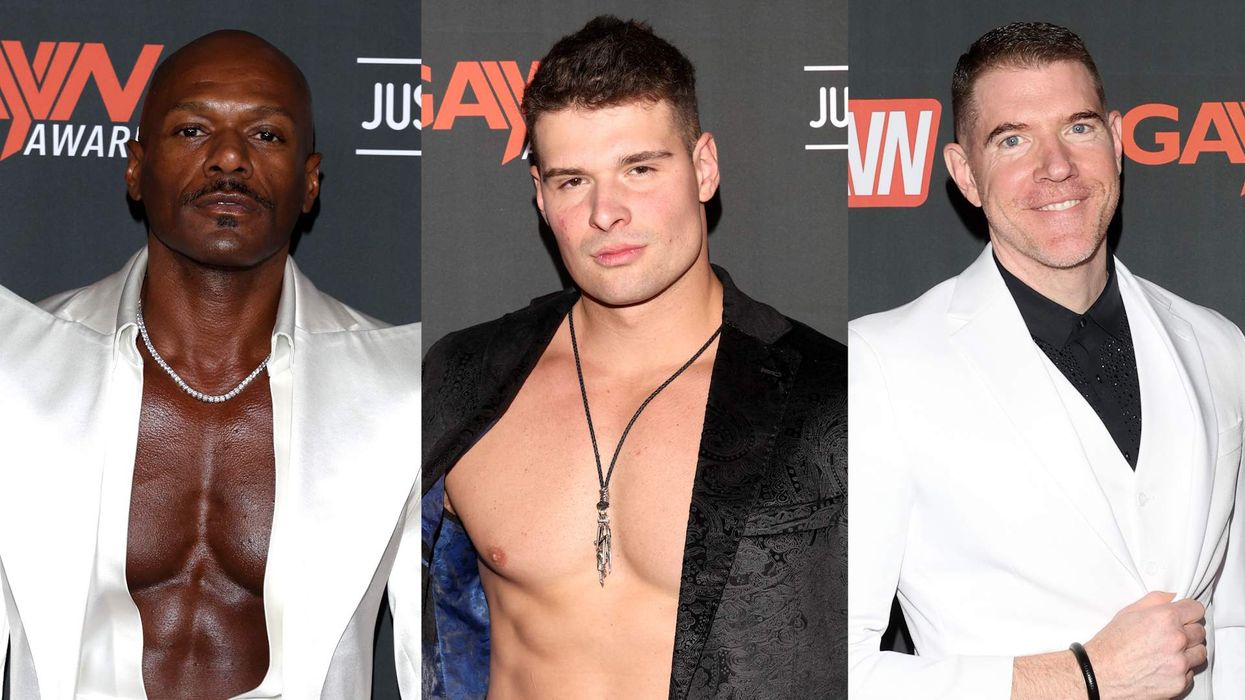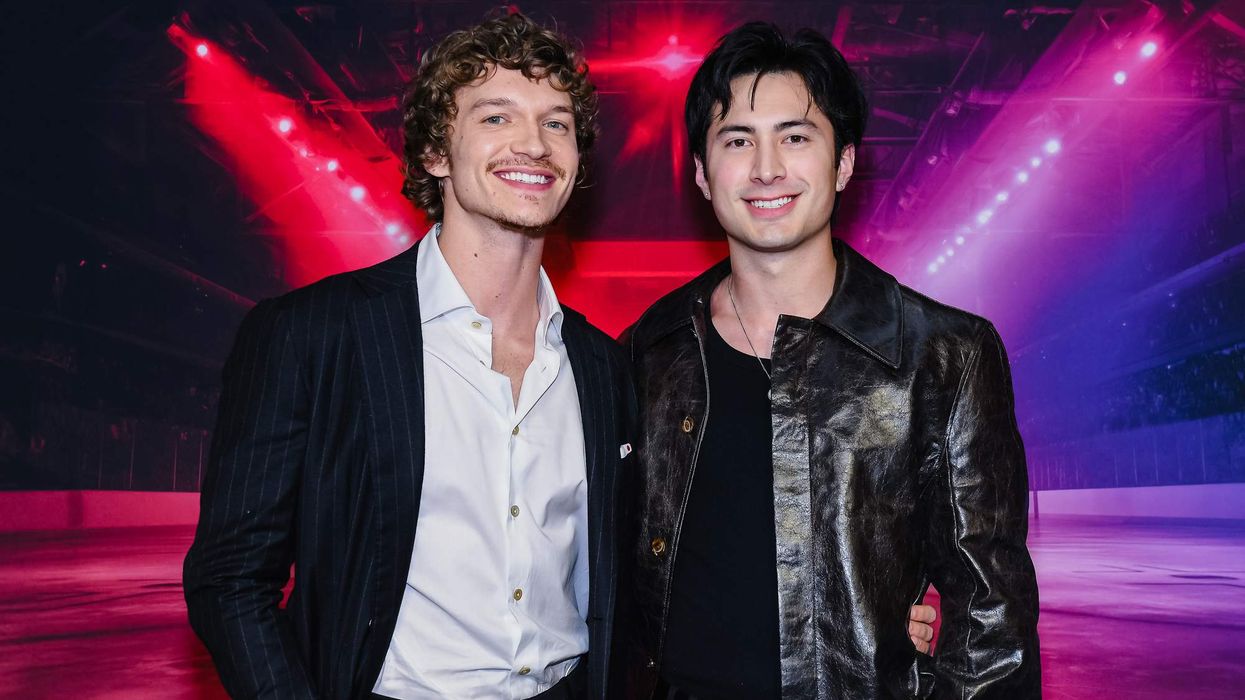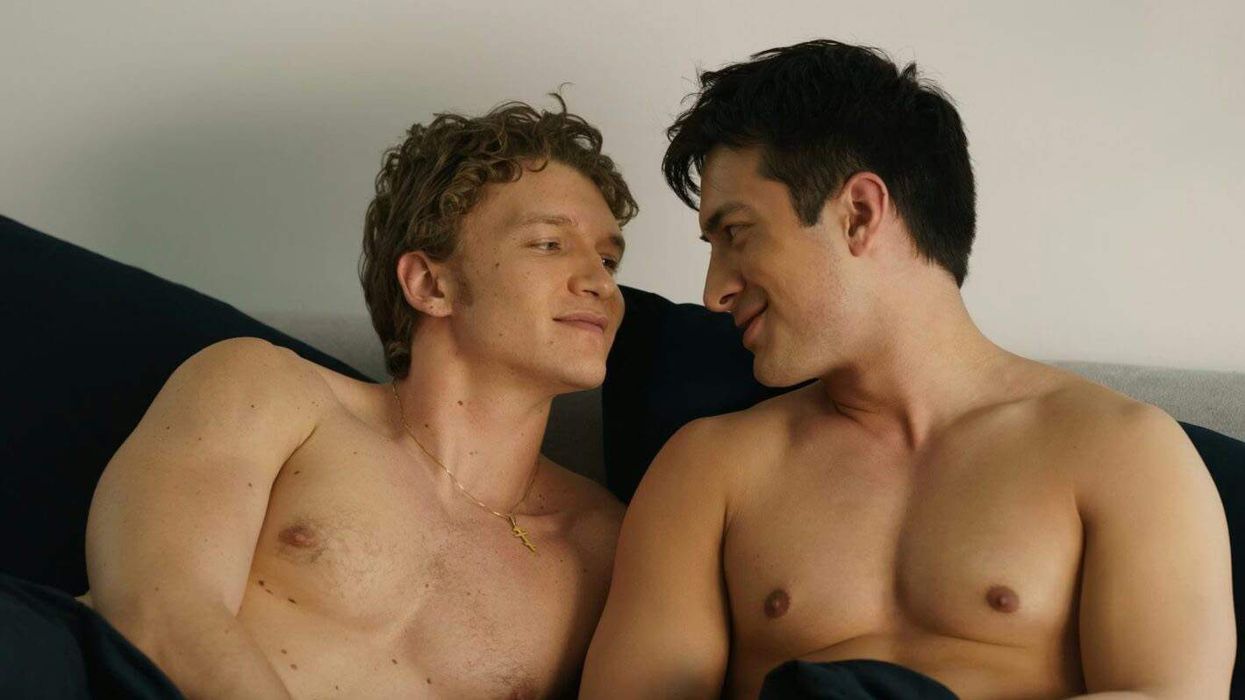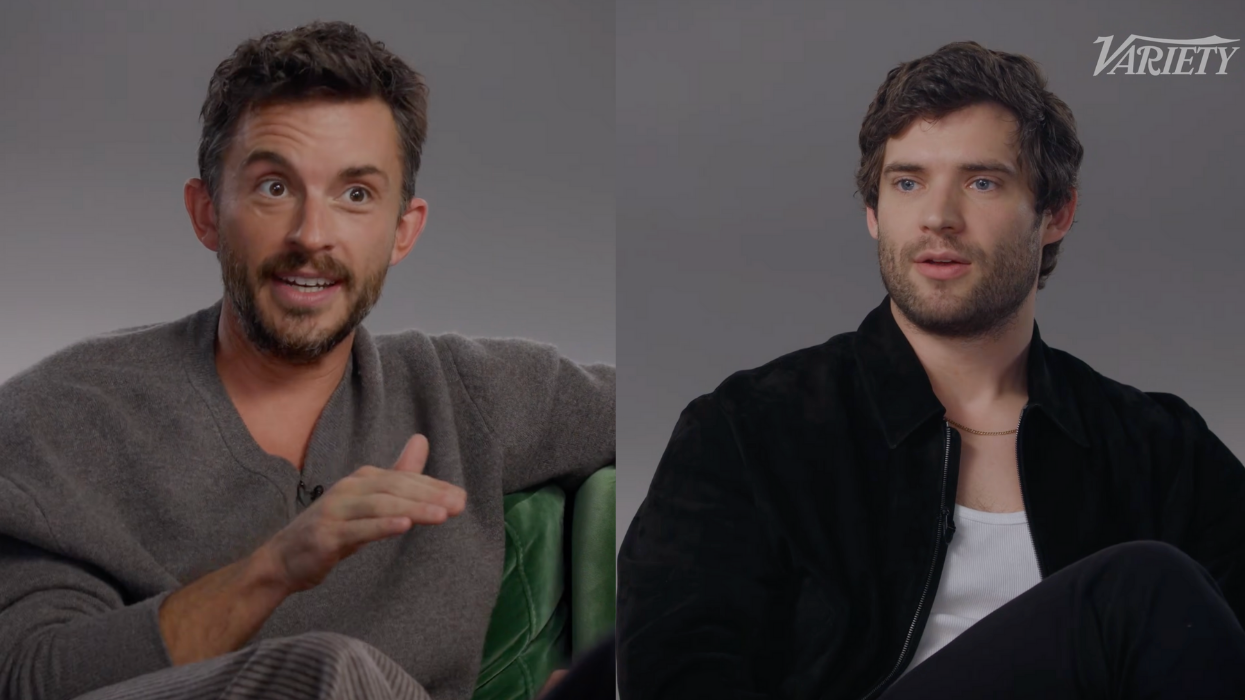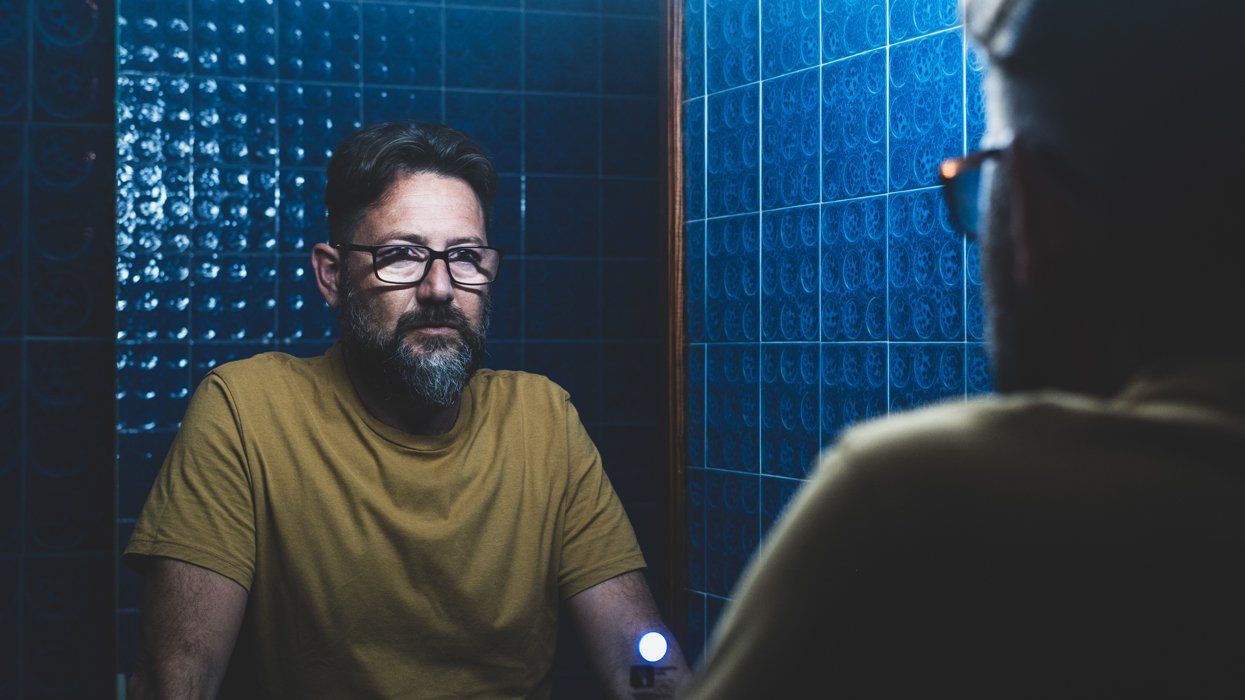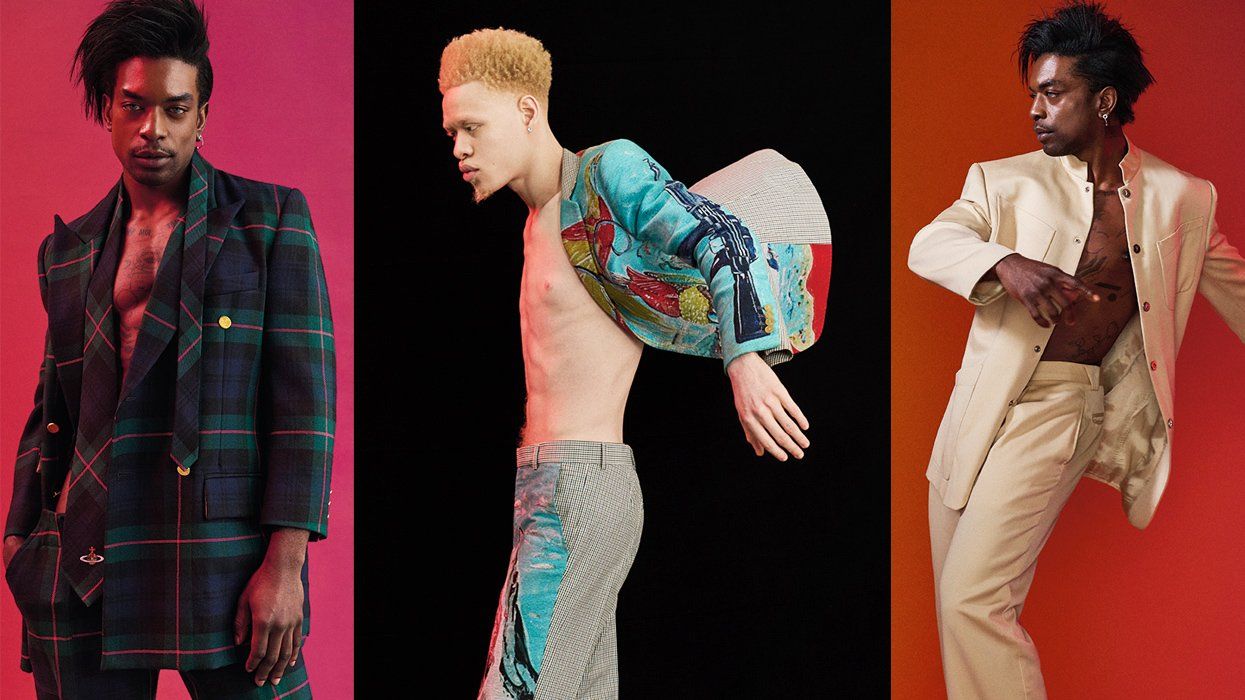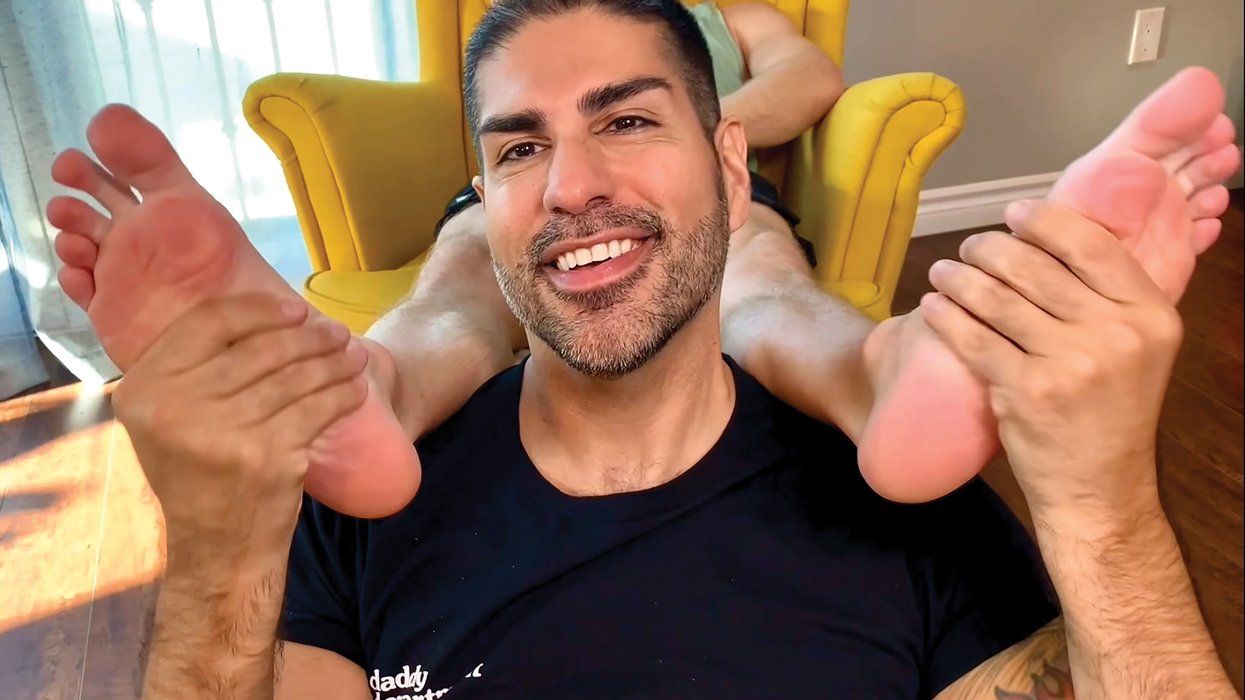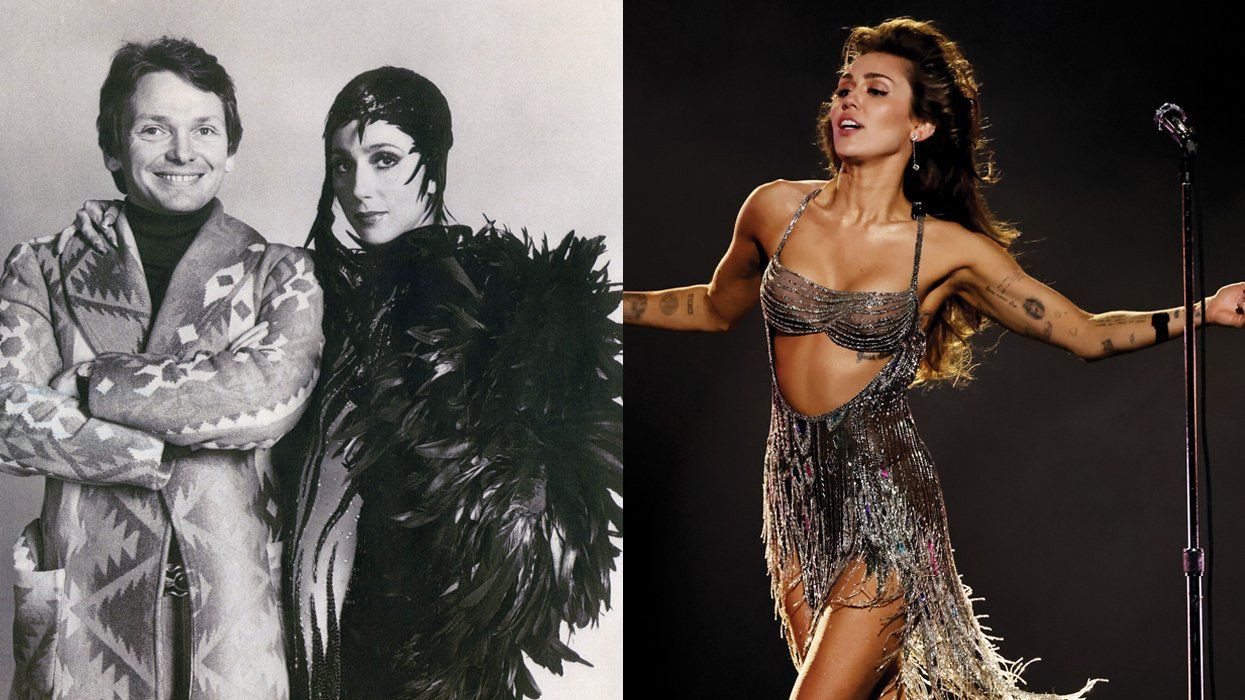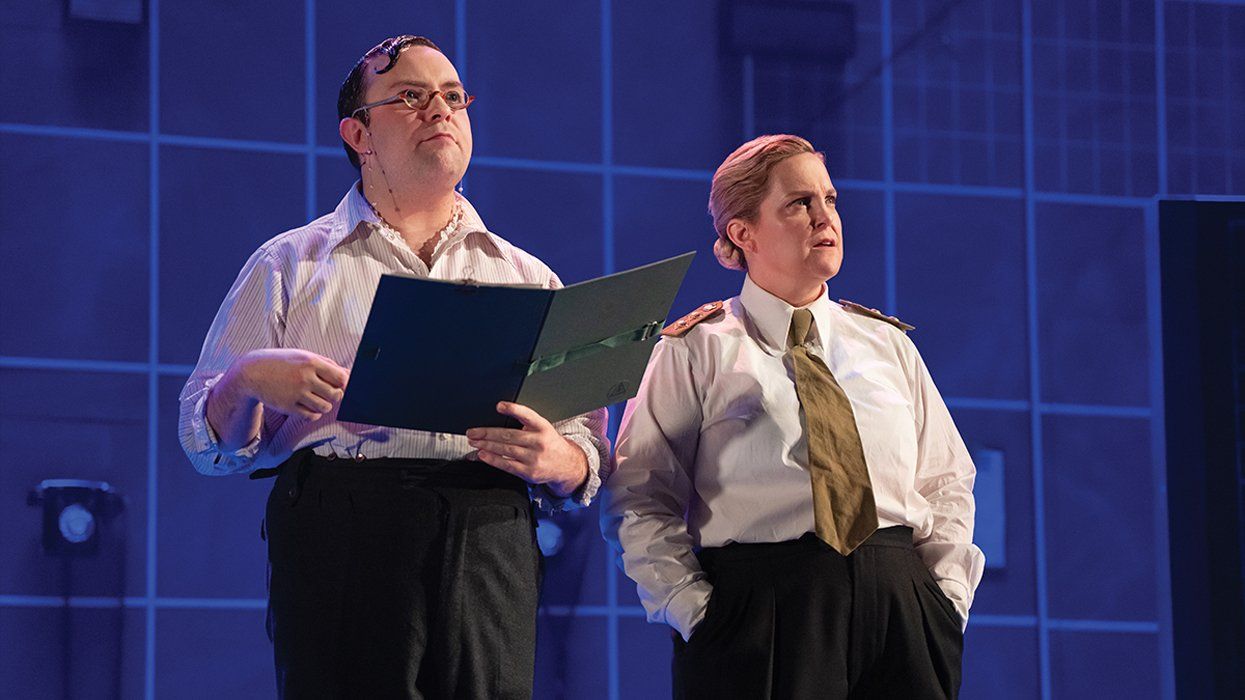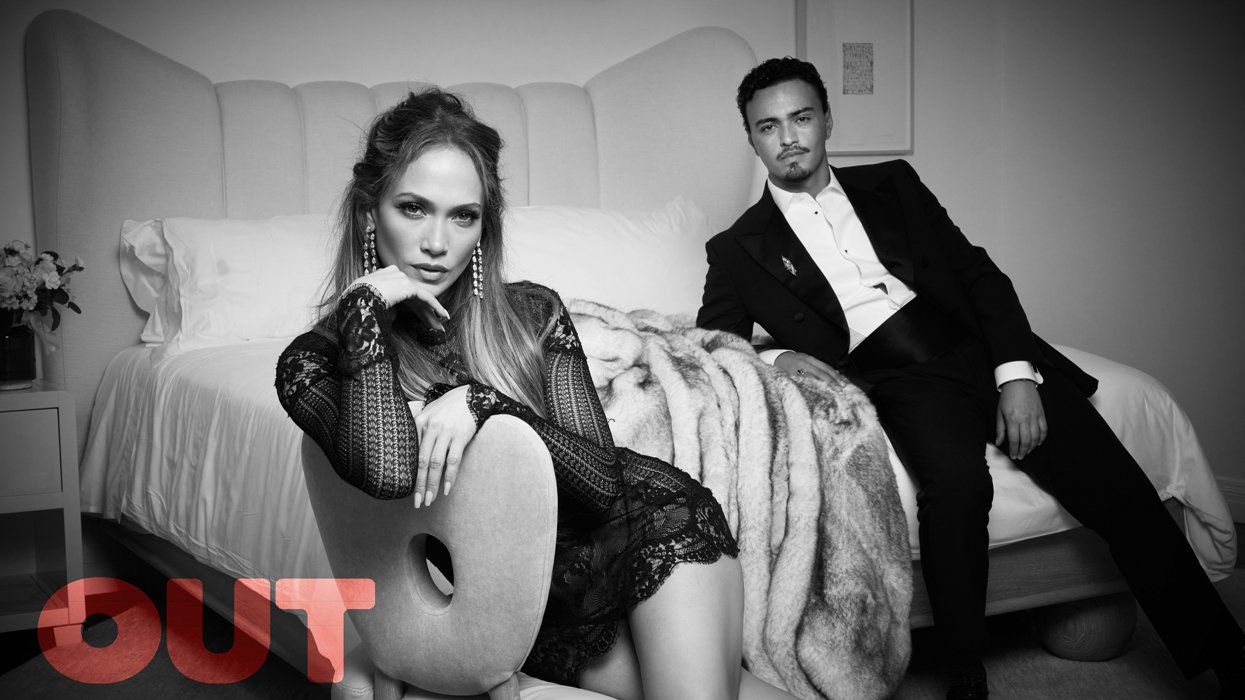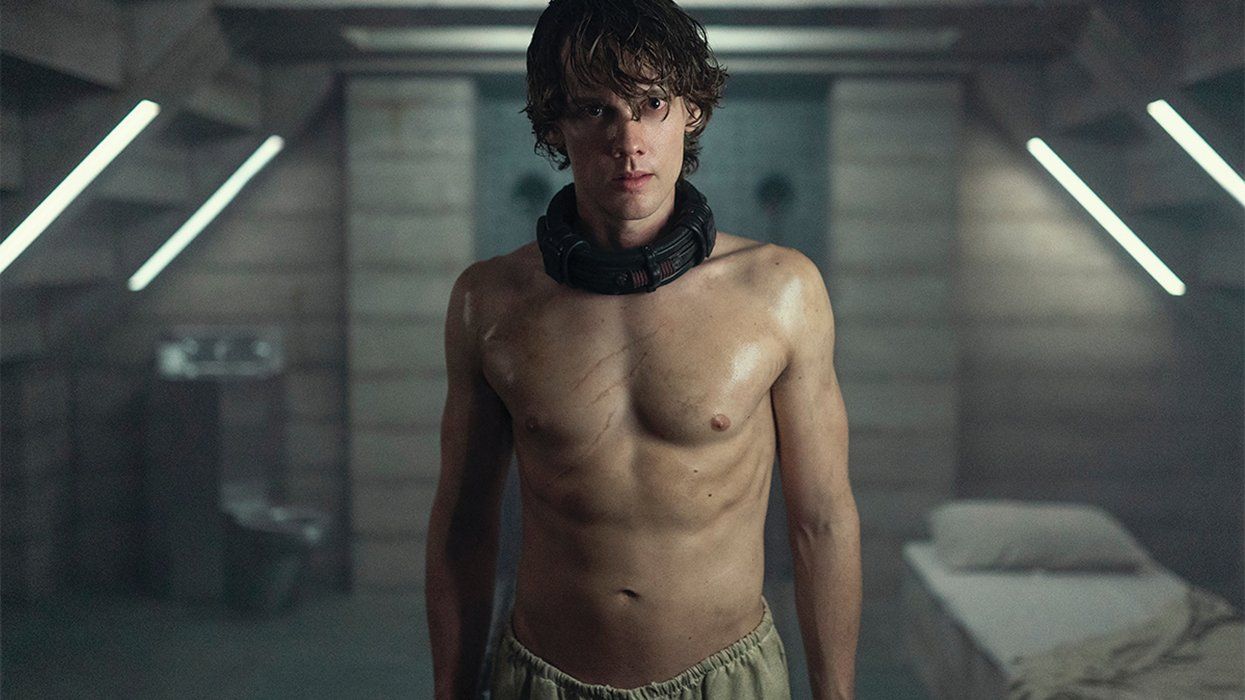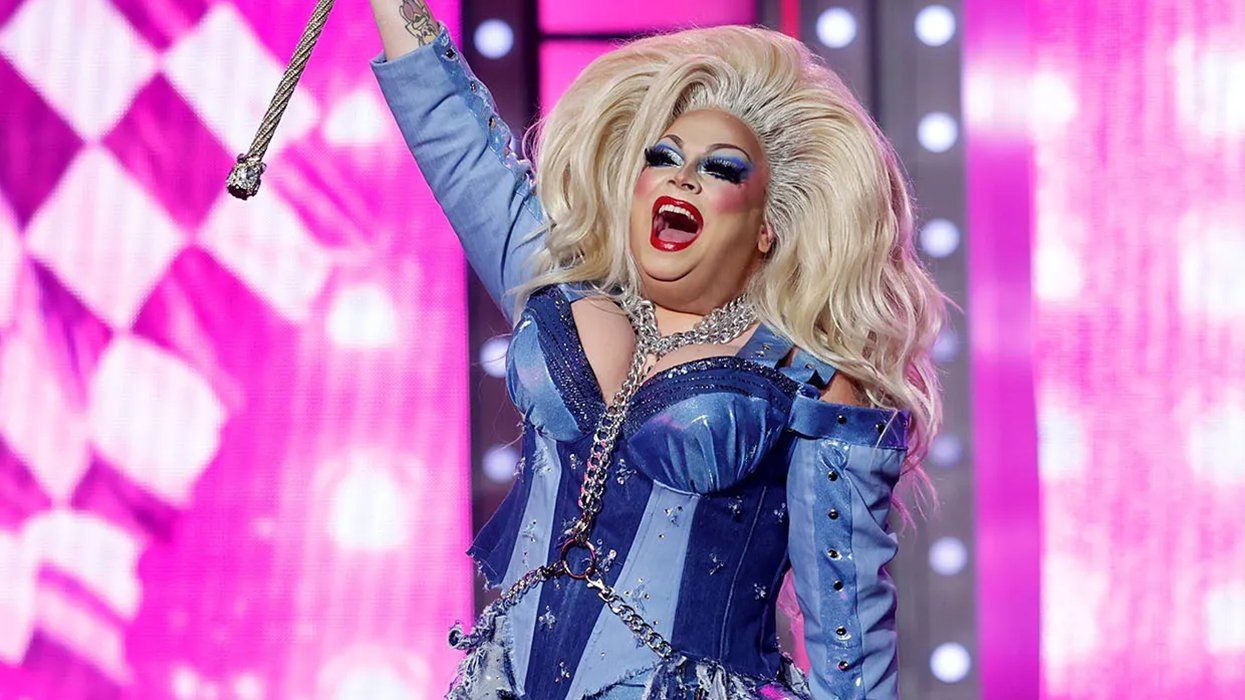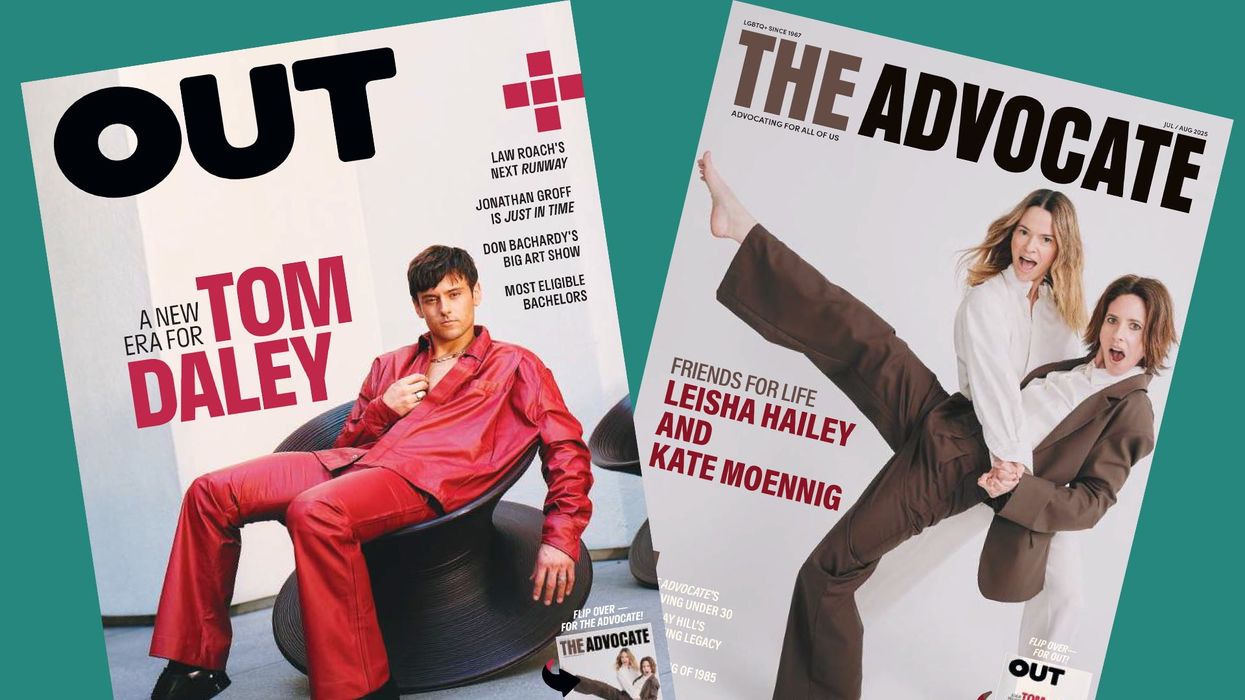While the Drag's Most Sickening 60 contest was stacked with queens who have graced TV screens on RuPaul's Drag Race, the top five was largely comprised of queens who have paved their own way as entertainers, and no one encapsulated that path quite like BibleGirl666. The self-proclaimed "internet reality trash" has turned herself into a living meme, spawning both a huge base of devoted fans as well as a lucrative career as the CEO of Drag Queen Merch, creating a way for queens from every corner of the industry to profit off their merchandise. BibleGirl proves that while Drag Race may be a ticket to stardom, it's not the only option for success as a queen.
Related | Drag's Most Sickening 60
"It's just neat to see now that a general public is saying Drag Race isn't the be all end all," BibleGirl told OUT in an interview. We caught up with meme queen in the weeks following RuPaul's DragCon as she was preparing to make the move from New York City to Los Angeles and she spilled the tea on everything from her Most Sickening 60 defeat at the hands of Tammie Brown to why teenage girls are so obsessed with drag queens.
OUT: How does it feel to have lost to Tammie Brown?
Biblegirl666: It feels okay, honestly. She's got a legacy which deserves to be upheld. It's actually nice to see that there is such a core fanbase that is so dedicated in wanting to vote for her [so long after her appearance on Drag Race and All Stars], but I think she was wrongfully eliminated on both runs that she had on television. When she got re-announced for All Stars, it was such a fever dream. Then, that quickly ended unfortunately, so it's cool to see it's alive and well for her.
It was really interesting that the contest was stacked it with a lot of Drag Race girls, but almost the entire top five were queens who haven't been on the show. What do you think of that? What does that say about the actual fandom of drag, especially on the internet?
I think since the mainstream fandom of the younger demographic for Drag Race, that really rooted deeply with Season 6, Season 7 kind of level. Since those seasons, that exact fandom has generationally also grown older and more mature, and I guess gained perspective on what the actual drag industry is at-large. With the fact that the drag fandom, by word of mouth and spreading word to their friends and being as core of a root to the fandom as they are, I think that's what's kept people wanting to keep the other girls alive and well.
I want to talk about your career, and how you used the internet to build this brand for yourself.
For myself as a queen, I wanted to tap the idea of virality, and how virality can open the doors to any possibility if it's harnessed the proper way. One angle that I felt came from an authentic place for me was starting out as "new bitch on the block" in Brooklyn or Manhattan. I felt like I was slighted or not taken seriously, even before the character was fleshed out. I felt this gut instinct to take and run with the self-deprecation and find humor in what people thought were my weaknesses, and learn from that criticism, too, all while taking ownership of what was being seen as wrong with me and then turning it into my own joke. That's the blueprint that I followed, I just wanted to be the spam account of drag. Something viral, something silly, something not to be so serious and fun, which is what drag is supposed to be.
Drag is traditionally an artform that's very much based in community and performance, but now it's become very centered on the internet. How do you think that has changed the art of drag?
It's changed who's getting booked, realistically. It's the nature of the beast. Social media by far has been able to aid queens and be able to shift how people perceive them, which adds to being able to change the rank and popularity. It's on a superficial level that people just take it for what it is when there's still kind of veil and mystique which is aiding a lot of queens, including myself.
One of things Drag Race has really done is humanize drag queens who are these larger than life characters, but now now everyone has a narrative. Social media has done that for queens who haven't been on the show. How human should drag queens be?
Humanizing drag queens is okay. It's a weird grey area on Drag Race when the girl gets a fully fleshed out narrative, it's also the same episode that they happen to be going home. That's a little unfair because to start a dialogue and leave it unfinished is unfair to that queen. On the same note, they're also given that platform of visibility to further continue that conversation as they see fit. Humanization, in general, is good because fans look for that connection. To able to have that relatability is important because it also adds to understanding.
Why are teenagers, specifically teenage girls, so obsessed with drag queens?
It's no different than when I was a young boy and was obsessed with things that were pretty and feminine and amazing. There's an excitement in the celebration of femininity or celebration of saying "fuck you" to whatever spectrum or binary we've all kind of been placed in. It breaks the glass ceiling of what we're told we're supposed to be or how to act.
Do you think these girls who are consuming drag mostly online are missing out on its context and history, which is deeply rooted in nightlife and queer community. Are they getting a sanitized experience of what drag is?
I think so, but it's okay to have a training wheel to the culture. For any young demographic to be thrust into any form of nightlife, it's the antithesis of what you said. It's not sanitized, so I think it's okay for people to have something introductory. At the same time, if they don't jive with the nightlife culture, they can still find comfort and solace within what drag is supposed to bring to the table in the first place.
You were just at DragCon. Now, drag queens under fluorescent lighting at 2 PM sounds like a nightmare to me, but what was your experience?
It was really fun. It was our least stressful operation to date as far as having a booth was concerned. We had been strategizing it since late November, early December. I'm that glad we've learned to start as early as we have because everything fell into place as it should've this year. Set-up day was still a kick in the dick, but I'm so glad that's my job.
I want to talk about Tyra Sanchez, who made some ominous threats after being banned from DragCon for threatening Tatianna and Phi Phi O'Hara.
How about the fact that she didn't get arrested leading up to DragCon? I can understand her perspective with what she was facing, but when someone is acting as an aggressor in a situation continuously, it's hard to defend those actions. In this case, if you're [insinuating] you're going to blow up a public space that's supposed celebrate queer youth and the ongoing growth of our queer culture, it's a disservice. A lot of people want her to succeed. I think she's really talented personally, so it's disappointing that she's going down a route, from my perspective, like she doesn't want help. That's a shame because she can do lots of good with what she's been given as a platform and what talent she's been given, too.
Related | Tyra Sanchez Makes Ominous Threats After Being Banned From DragCon
I know that recently you did an event with the LGBTQ Center where you got to meet a lot of your young fans. Is connecting with queer youth important to you?
Absolutely. [As a teenager] I didn't really have someone to look up to or relate to as someone who was gay or trying to figure out my identity. That's where the MySpace angle for my drag comes from. I was hooked onto Jeffree Star, Audrey Kitching, Hanna Beth, that whole crew. Twist it now to where I'm the ages they were when I was looking up to them, I just feel like it's the cycle that I need to now continue. It's important, kids are impressionable. That's one of my favorite things with DragCon, being able to meet parents of kids that are at the event.
In an alternate universe where you were on Drag Race, what does your career look like? How is it different than your career now?
I don't know how much different it would be, and I don't know that I would necessarily place that high. I believe in my talent and I believe in what I do, but you never know what you're thrown on the show. You just never know what cards are going to be dealt to you or what goes on behind the scenes. I'm a perfectionist in regard to my job. Everything else, I'm kind of willy nilly, a little loosey goosey. When it comes having to focus on something like that, I would definitely step up to the plate and not be afraid of any challenges. I think people would be receptive to that.
Do you think that the drag industry is moving past a status quo where RuPaul is the sole arbiter of drag, or is his power absolute?
I don't think his power will go away. His influence is very much so integrated into how the industry works as a whole. Since he hit mainstream in the 90s, as much as he would hate to admit he was ever mainstream in the first place, he set a standard between having shows or having books or being out on platforms and at different award shows and red carpets and parties with different A-listers. She did, even pre-Drag Race, set the standard of what good drag or top tier level drag queen personalities are. Because of the immortalization of that through different formats of media or even through Drag Race, I don't think that visage will fade anytime soon, which isn't a bad thing. She certainly paid her dues, albeit being problematic, but I think even though her influence and her power remain timeless, I don't think that influence and the leadership of others are mutually exclusive. There's definitely enough room in the industry, and I think it's also up to the fandom to have that shift. Also, queens have to step up to the plate, which they are. Using your own voice, whether you're on the show or not, and making your path known to everyone else.
There's been a lot of talk recently about the toxicity of the Drag Race fandom. Drag is an artform that is celebratory of queerness and of beauty, but there is a lot of shade built into it. Do you think that negativity of the fandom is a symptom of that or is just a symptom of the internet?
It's definitely a demon that's fed by both aspects. Also, production of Drag Race certainly leans into it whether they want to admit it. It's a whole can of worms. Regardless, because of social media being the internet hate machine, having that cog-like synergy with how Drag Race operates, they feed into each other and create what the fandom thinks they're supposed to be conditioned to act as. Because of how young the fandom is, they're also a bit more impressionable. This is what they're being told to consume, and this is what it is. Some people have a good gauge of what is appropriate and what isn't, but I've had experiences where there hasn't been tact. It comes off as what specific people have been normalized to.
What do you hope is the future of drag as an industry, as an artform, as a community?
I think having a union would be amazing. We're incrementally, each year as an industry, getting to a more mainstream place whether we like it or not. I think it's a good thing because it's uplifting our entire queer industry at-large for entertainment. I would like it to be not so under the table. I know smaller industries within local cities can operate that way, but, in fairness to kids who work their asses off on a local level-whether they want to be on Drag Race or not-they deserve to have benefits. I think that's the biggest thing because that's where a lack of emphasis is right now in the industry.


